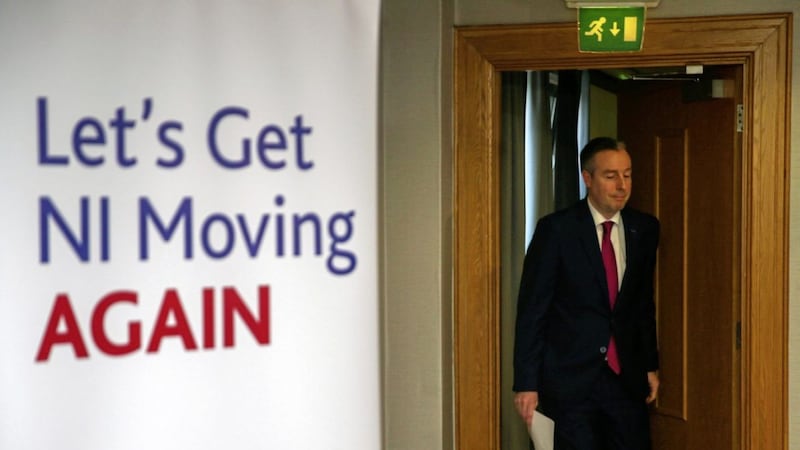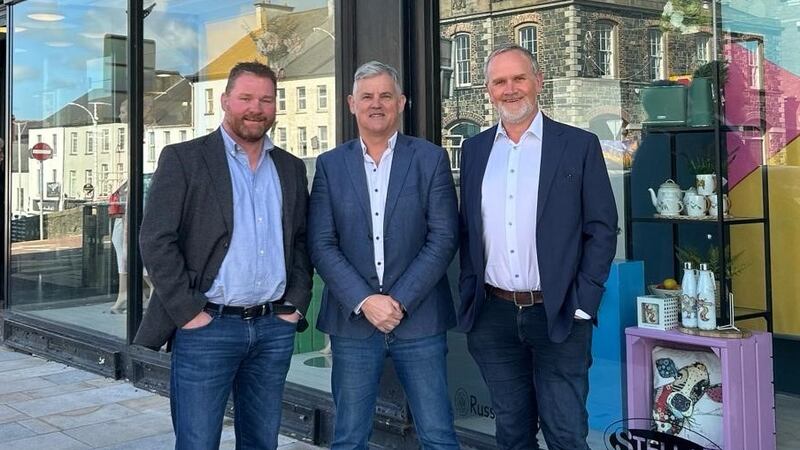DUP leader Sir Jeffrey Donaldson was absolutely correct when he summed up the issues around the Brexit offspring, the Northern Ireland Protocol.
Shortly after the UK-EU deal was agreed he said: “Customs checks don’t change the constitutional status of a part of the United Kingdom... We are seeing business leaders and political parties coming together to explore how we can exploit the situation, with full access to the UK market and to the EU market.”
It was his instinctive reaction and like I said, he was absolutely right.
The protocol does not affect the constitutional status, only the people who live in Northern Ireland can do that through the ballot box.
He was also right to flag up the potential benefits which could be exploited given our unique position with access to both markets.
The interview with these comments was recorded around the same time that former DUP leader Arlene Foster was talking about the ‘gateway of opportunity’ which the Protocol affords this region, that was her instinctive reaction.
This was in the era before the blue bin brigade woke up, got vocal, and aided by Jim Allister and a handful of commentators, were able to whip up such a degree of political paranoia that the DUP put in place a complete U- turn.
By the time the policy switch was completed the party had gone through not one but two new leaders amidst a civil war which still rages and from which wider society feels the impact.
The U-turn was concluded last week with the resignation of First Minister Paul Givan. In his final speech Givan sounded disappointed to be giving up the role, one which he clearly relished and to be fair it was a position he had grown into in the brief time he was there.
If Givan was indeed frustrated that is merely a reflection of how the majority of the population observed last week’s horror show.
Narrow, party political interest and the attempt to shore up a party in disarray has trumped the economy, and the opportunity of a shared prosperity which could have led to a more settled Northern Ireland than we have ever had.
Frustrating? Yes you could say that for sure. Politics appears to have won out over prosperity.
Of course there are issues around the protocol. My personal desire for a shared, prosperous Northern Ireland does not render me so naive as to deny the problems that are faced by some businesses.
However they can be worked through, they are being worked through and it is clear that progress has been made between the EU and UK in recent weeks.
Practical solutions to the questions around checks on specific goods are attainable, given goodwill on all aides. That is one reason why the nuclear option which the DUP has reached for is so politically illogical.
So too are the figures being liberally quoted by the DUP leadership team.
To say the Protocol is costing £2.5 million per day is a statistical nonsense which belongs on the side of a bus, it doesn’t stack up.
It takes no account of the actual Brexit impact and it assumes we are gullible fools.
I prefer to take my analysis of the effect on business from the business community themselves. Manufacturing NI has surveyed its members and it is clear that as protocol issues are worked through, the negative impact recedes.
One-in-four still report difficulties, down from 77 per cent 12 months ago.
As the DUP were preparing to abandon the Executive, the Port of Belfast was announcing an increase of nine per cent in trade which the Harbour authorities attribute to the protocol benefits.
That is just the most recent example of a business which is working the system and making the protocol pay off.
There are dozens and even hundreds more, and the list of recent foreign direct investment projects which have been announced in this last 12 months points to a positive investment climate which will delivery opportunities for our young people and help bed down a prosperous economy.
The negative response to the DUP stunt was widespread and was not confined to their political opponents.
The NI Chamber of Commerce was very strong in its reaction, saying: "This decision creates an unsustainable level of uncertainty for businesses, at a time when they need support and stability. It also has the potential to seriously damage local and international business confidence.”
The Belfast Chamber of Trade, headed by former DUP Economy Minister Simon Hamilton, was equally scathing and reported that investors had already been in contact to query whether the region is still stable.
Similar sentiments came from other business representative bodies, all bemoaning the damaging impact of political chicanery on the economy and on the business community. The DUP has previously presented themselves as an ally of the business community here, that is no longer the case.
I have worked with many businesses down the years, indigenous, international, small and large. They all crave stability and certainty, those are the building blocks of a thriving economy.
Last week party politics won out over the economy. Don’t we deserve better?
Brendan Mulgrew is managing partner at MW Advocate (www.mwadvocate.com). Follow him on Twitter at @brendanbelfast








